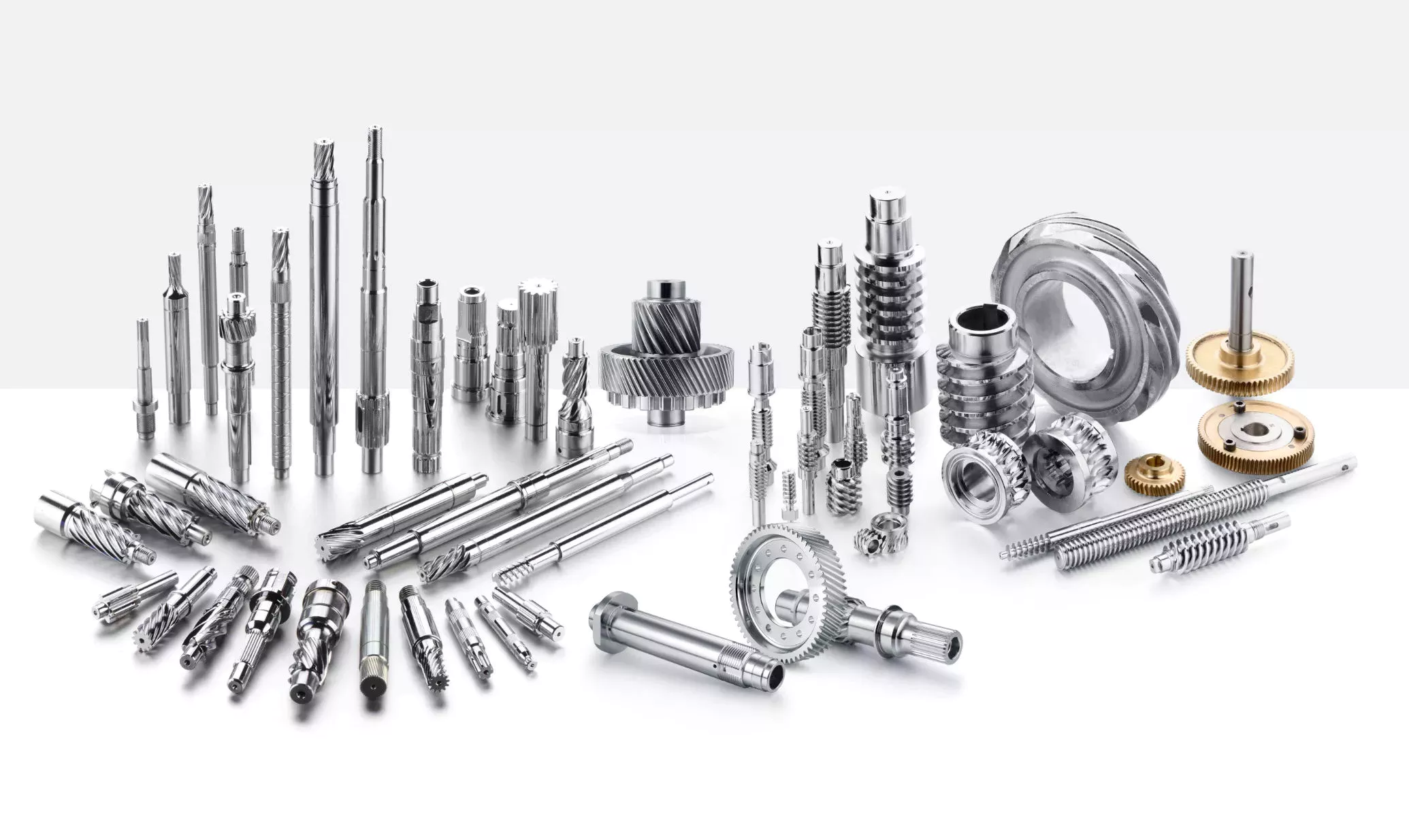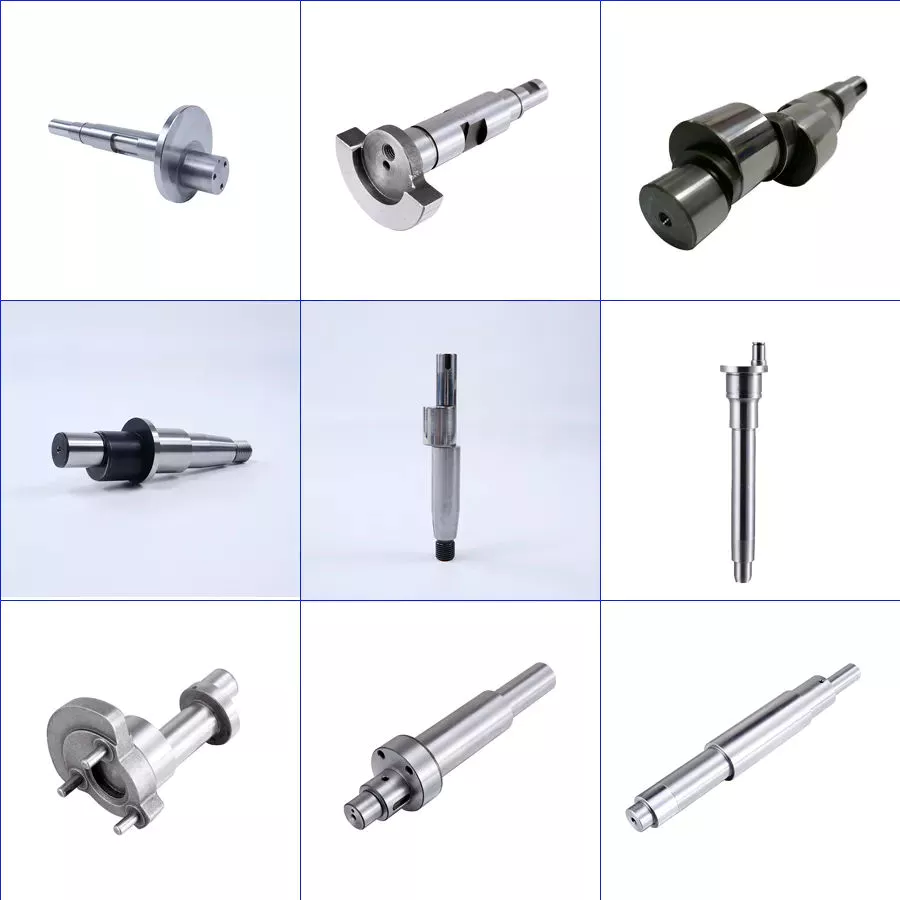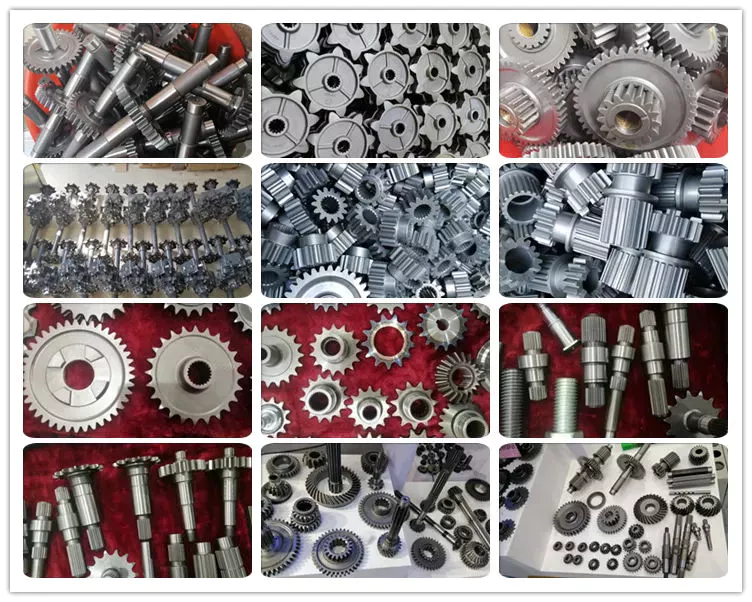Product Description
Stable and Realiable Motorcycle Clutch Assy AX100
What Is A Motorcycle’s Clutch Made Of?
The clutch pack is made up of a stack of alternating steel plates and friction plates. The steel plates have tangs along their inner diameter that engage with the clutch’s inner hub, which is fixed to the end of the input shaft via splines. The friction plates have lugs along their outer edge that slot into the outer clutch basket. Springs (usually of the coil type but occasionally a diaphragm design) press the steel plates and the friction plates together, coupling the outer clutch basket to the inner hub, thereby transferring the crankshaft’s rotation to the input shaft.
Why so many plates? More plates mean a greater load capacity for the clutch. To achieve sufficient load capacity on a single-plate clutch (as on older BMWs and current Moto Guzzis), a very large disc must be used, and that takes up a lot of space. Meanwhile, the multi-plate clutch on a Hayabusa uses a stack of smaller-diameter plates and is easier to package. The 6 springs on a Hayabusa clutch only put about 400 pounds of pressure on the pack. That doesn’t sound like much given the tremendous power that clutch has to handle, but that 400 pounds are acting on all 19 clutch plates (10 friction plates and 9 steel plates, plus the hub and pressure-plate faces).
Market Background:
The replacement and repair of motorcycle clutch need to dismantle the engine box, which is complex and time-consuming.The existing maintenance market often has the phenomenon that the unqualified clutch can not be used or the service time is very short, and it is not durable.It is time-consuming and laborious for repeated disassembly and repair, which seriously affects the user experience and the work efficiency of the repair technician.
In order to avoid this kind of phenomenon, our company launched “Yonghan” brand upscale products!The qualified rate of products will reach “100 percent”, and the normal service life of each product will be extended by 30%!
At the same time, the products have super high cost performance ratio, which makes users feel at ease and the repairmen feel comfortable.
Company Profile:
ZheJiang CZPT Machinery Processing Co., Ltd. was established in 2003 which is specialized in manufacturing motorcycle clutch assembly and spare parts with complete varieties and most reasonable price in China mainland.
Our company owns tens of equipment for processing and testing.The total area of workshop,warehouse and office building is about 10000 square meters.There are 200 staff in our company,including 20 professionals.The company’s main products are: GY6-50,GY6-90,GY6-125,C100,CY80,C90,C120,T100,T125,DK100A,DK100B,DX125,FY100,WIN100,YX100,DX110,DX125,982,983,GS125,CG125,CG150,CG200,CG250,CG260,CB125,CB150,CB200,CB250,CBF150,CBT125,CBT250,LF175,GF125,GN250,ATV250,ATV400,BAJAJ100,BAJAJ135,BANAJ180,TVSN35,TVSN45,YH162 for clutch assembly and parts. We have aboundant resources of motorcycle engine accessories and established a long-term cooperative relationship with famous domestic enterprises.
Our products have exported to Parkistan,Iran,Egypt,Turkey India,Burma,Malaysia,Korea,Indonesia, Vietnam,Laos,Cambodia,Thailand,The Philippines,The Dominican,Brazil,Xihu (West Lake) Dis.via etc., whitch covers more than 20 countries including south-east Asia,Middle- East,South America and Africa.
With the company’s development and strength of production capacity, we heartily hope that we can have long relations of cooperation with the vast number of peers and customers.We could providing products with high quality and services for customers adhering to the realistic,innovative,beneficial,and CZPT faith.
YH Motorcycle parts clutch and Friction plate:
1.Factory original selling YH CG125 motorcycle clutch and accessories;
2.Friction materail from ZheJiang ;
3.can be widely use on many different contries;
4.We have more than 21 years experience on clutch produce;
5.Most of the clutch parts produce by our own,the quality control is very effective.
Product Detail:
| Product Name: | Stable and Realiable Motorcycle Clutch Assy AX100 |
| Model No.: | AX100 |
| Materials: | ADC12 |
| Adaptable vehicle: | SUZUKI |
| Distinguishing feature: | These products can stand wear and tear with long service life. |
| Main Market | All over the world |
| Certificate | ISO9001:2015 |
| Package: | Normal Export package, and if customer have special request on packing, we can do accordingly |
| Delivery time: | 5-7 days according to detailed order |
| Payment: | 30% deposits, 70% balance before shipment |
Other models available:
| REGI0N | MODEL | |||
| Brazil | CB300 | FAZER250/LANDER250 | TITAN95/99/CG83 > TODAY/CBX200/TITAN2000 | YBR125 ATE 2014 /XTZ125 ATE 2014 |
| YBR125/FACTOR 125 | TITAN150 2004/BROS150>2006/FAN150/FAN125>2009 | TITAN CRF230 | TITAN 150 05>14/ FAN 150/FAN 125>09/ | |
| CBX 250 TWISTER | CG 125/TITAN/FAN 83>08 | |||
| Indonesia | GRAND | LAGENDA | KARISMA | REVO |
| JUPZTER Z 18T | JUPZTER Z 24T | JUPZTER Z 20T | KAZE | |
| FORCE-1 | JUPITER Z | SMASH | LC135 JUPITER MX | |
| SHOGUN | SHOGUN-I | KAZE | SPARK | |
| JUPZTER Z 21T | CRYPTON | JUPITER Z1 VEGA ZR | ||
| Malaysia | LC135 | SRU115 | SRL115 F1 | SRL110 |
| LAGENDA | KARISMA | Y110/100 | C70-8 | |
| GN5 | ||||
| South America | CD100 | CG125 | CG125-5P | AX100 |
| CB125 | AT110 | BAJAJ135 | TITAN /STORM /BROSS /XLR/BX150 |
|
| YBR125 | SMASH | SMASH BIT | WAVE | |
| BM150 | V80 | YB100 | CG125N/M | |
| BAJAJ100 | TITAN 150 | RX150 | TITAN125 | |
| Africa | AX100 | CG125N/M | CG125O/M | YB100 |
| CD110 | CRYPTON | VEGAS | SPARK | |
| DX100 | ||||
| Thailand | WAVE110 | WAVE125 | Y100 | DREAM C100N |
| AX100 | GN5 | DREAM | ||
Product Detail:
Strandard exporting carton box packing:
Step1: Use plastic bag packing
Step2: Put it into a small carton box,one pcs 1 box
Step3: Put the small box into big carton box,one box 16pcs
Step4: Put the big carton box on the tray
Step5: Move into the ware house,waiting for deviery
FAQ:
Q1. The motorcycle clutch,what is your terms of packing?
A: Generally, we pack our goods in neutral white boxes and brown cartons. If you have legally registered patent, we can pack the goods in your branded boxes after getting your authorization letters.
Q2. What is your terms of payment?
A: T/T 30% as deposit, and 70% before delivery. We’ll show you the photos of the products and packages before you pay the balance.
Q3. How about your delivery time?
A: Generally, it will take 5 working days after receiving your advanced payment. The specific delivery time depends on the items and the quantity of your order.
Q4. What is your sample policy?
A: We can supply the sample if we have ready parts in stock, but the customers have to pay the sample cost and the shipping cost.
Q5. Do you test all your goods before delivery?
A: Yes, we have 100% test before delivery.
Factory Show:
The Functions of Splined Shaft Bearings
Splined shafts are the most common types of bearings for machine tools. They are made of a wide variety of materials, including metals and non-metals such as Delrin and nylon. They are often fabricated to reduce deflection. The tooth profile will become deformed with time, as the shaft is used over a long period of time. Splined shafts are available in a huge range of materials and lengths.
Functions
Splined shafts are used in a variety of applications and industries. They are an effective anti-rotational device, as well as a reliable means of transmitting torque. Other types of shafts are available, including key shafts, but splines are the most convenient for transmitting torque. The following article discusses the functions of splines and why they are a superior choice. Listed below are a few examples of applications and industries in which splines are used.
Splined shafts can be of several styles, depending on the application and mechanical system in question. The differences between splined shaft styles include the design of teeth, overall strength, transfer of rotational concentricity, sliding ability, and misalignment tolerance. Listed below are a few examples of splines, as well as some of their benefits. The difference between these styles is not mutually exclusive; instead, each style has a distinct set of pros and cons.
A splined shaft is a cylindrical shaft with teeth or ridges that correspond to a specific angular position. This allows a shaft to transfer torque while maintaining angular correspondence between tracks. A splined shaft is defined as a cylindrical member with several grooves cut into its circumference. These grooves are equally spaced around the shaft and form a series of projecting keys. These features give the shaft a rounded appearance and allow it to fit perfectly into a grooved cylindrical member.
While the most common applications of splines are for shortening or extending shafts, they can also be used to secure mechanical assemblies. An “involute spline” spline has a groove that is wider than its counterparts. The result is that a splined shaft will resist separation during operation. They are an ideal choice for applications where deflection is an issue.
A spline shaft’s radial torsion load distribution is equally distributed, unless a bevel gear is used. The radial torsion load is evenly distributed and will not exert significant load concentration. If the spline couplings are not aligned correctly, the spline connection can fail quickly, causing significant fretting fatigue and wear. A couple of papers discuss this issue in more detail.
Types
There are many different types of splined shafts. Each type features an evenly spaced helix of grooves on its outer surface. These grooves are either parallel or involute. Their shape allows them to be paired with gears and interchange rotary and linear motion. Splines are often cold-rolled or cut. The latter has increased strength compared to cut spines. These types of shafts are commonly used in applications requiring high strength, accuracy, and smoothness.
Another difference between internal and external splined shafts lies in the manufacturing process. The former is made of wood, while the latter is made of steel or a metal alloy. The process of manufacturing splined shafts involves cutting furrows into the surface of the material. Both processes are expensive and require expert skill. The main advantage of splined shafts is their adaptability to a wide range of applications.
In general, splined shafts are used in machinery where the rotation is transferred to an internal splined member. This member can be a gear or some other rotary device. These types of shafts are often packaged together as a hub assembly. Cleaning and lubricating are essential to the life of these components. If you’re using them on a daily basis, you’ll want to make sure to regularly inspect them.
Crowned splines are usually involute. The teeth of these splines form a spiral pattern. They are used for smaller diameter shafts because they add strength. Involute splines are also used on instrument drives and valve shafts. Serration standards are found in the SAE. Both kinds of splines can also contain a ball bearing for high torque. The difference between the 2 types of splines is the number of teeth on the shaft.
Internal splines have many advantages over external ones. For example, an internal spline shaft can be made using a grinding wheel instead of a CNC machine. It also uses a more accurate and economical process. Furthermore, it allows for a shorter manufacturing cycle, which is essential when splining high-speed machines. In addition, it stabilizes the relative phase between the spline and thread.
Manufacturing methods
There are several methods used to fabricate a splined shaft. Key and splined shafts are constructed from 2 separate parts that are shaped in a synchronized manner to transfer torque uniformly. Hot rolling is 1 method, while cold rolling utilizes low temperatures to form metal. Both methods enhance mechanical properties, surface finishes, and precision. The advantage of cold rolling is its cost-effectiveness.
Cold forming is 1 method, as well as machining and assembling. Cold forming is a unique process that allows the spline to be shaped to the desired shape. The resulting shape provides maximum contact area and torsional strength. Standard splines are available in standard sizes, but custom lengths can also be ordered. CZPT offers various auxiliary equipment, such as mating sleeves and flanged bushings.
Cold forging is another method. This method produces long splined shafts that are used in automobile propellers. After the spline portion is cut out, it is worked on in a hobbing machine. Work hardening enhances the root strength of the splined portion. It can be used for bearings, gears, and other mechanical components. Listed below are the manufacturing methods for splined shafts.
Parallel splines are the simplest of the splined shaft manufacturing methods. Parallel splines are usually welded to shafts, while involute splines are made of metal or non-metals. Splines are available in a wide variety of lengths and materials. The process is usually accompanied by a process called milling. The workpiece rotates to produce the serrated surface.
Splines are internal or external grooves in a splined shaft. They work in combination with keyways to transfer torque. Male and female splines are used in gears. Female and male splines correspond to 1 another to ensure proper angular correspondence. Involute splines have more surface area and thus are stronger than external splines. Moreover, they help the shaft fit into a grooved cylindrical member without misalignment.
A variety of other methods of manufacturing a splined shaft can be used to produce a splined shaft. Spline shafts can be produced using broaching and shaping, 2 precision machining methods. Broaching uses a metal tool with successively larger teeth to remove metal and create ridges and holes in the surface of a material. However, this process is expensive and requires special expertise.
Applications
The splined shaft is a mechanical component with a helix-like shape formed by the equal spacing of grooves in a circular ring. The splines can either have parallel or involute sides. The splines minimize stress concentration in stationary joints and can be used in both rotary and linear motion. In some cases, splines are rolled rather than cut. The latter is more durable than cut splines and is often used in applications requiring high strength, accuracy, and smooth finish.
Splined shafts are commonly made of carbon steel. This alloy steel has a low carbon content, making it easy to work with. Carbon steel is a great choice for splines because it is malleable. Generally, high-quality carbon steel provides a consistent motion. Steel alloys are also available that contain nickel, chromium, copper, and other metals. If you’re unsure of the right material for your application, you can consult a spline chart.
Splines are a versatile mechanical component. They are easy to cut and fit. Splines can be internal or external, with teeth positioned at equal intervals on both sides of the shaft. This allows the shaft to engage with the hub around the entire circumference of the hub. It also increases load capacity by creating a constant multiple-tooth point of contact with the hub. For this reason, they’re used extensively in rotary and linear motion.
Splined shafts are used in a wide variety of industries. CZPT Inc. offers custom and standard splined shafts for a variety of applications. When choosing a splined shaft for a specific application, consider the surrounding mated components, torque requirements, and size requirements. These 3 factors will make it the ideal choice for your rotary equipment. And you’ll be pleased with the end result!
There are many types of splines and their applications are endless. They transfer torque and angular misalignment between parts, and they also enable the axial rotation of assembled components. Therefore, splines are an essential component of machinery and are used in a wide range of applications. This type of shaft can be found in various types of machines, from household appliances to industrial machinery. So, the next time you’re looking for a splined shaft, make sure you look for a splined one.

